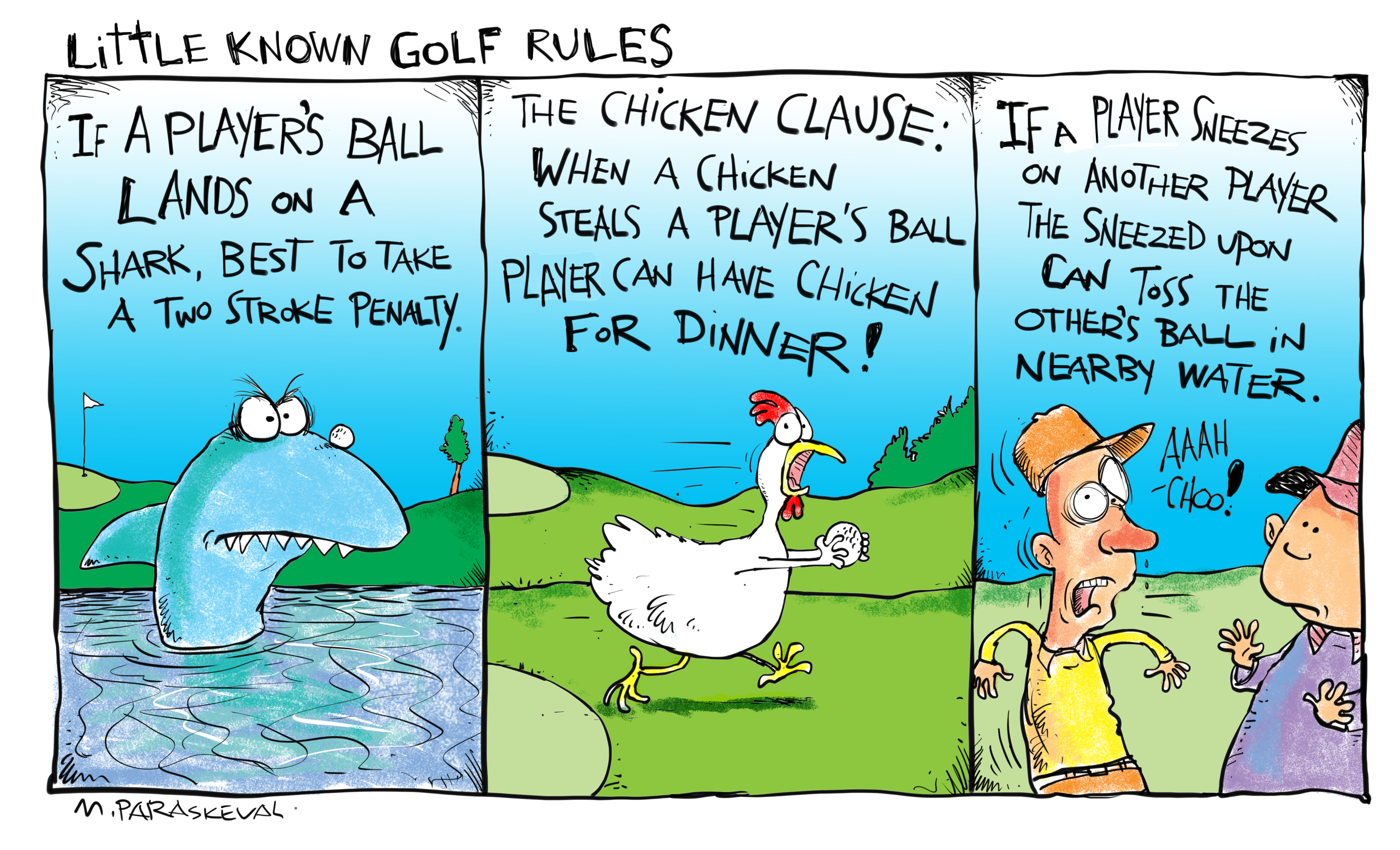Two Shot Penalty: How Hubris Cost Golfer $1 Million

It was thought that Tiger Woods had a good chance to win the Masters tournament two weeks ago. He has his love life straightened out. He’s hitting the ball well. When he hits it well, nobody can catch him.
Well, he might have won if he hadn’t said something he would have been better off not saying to the media. Among other things, it may have cost him more than a million dollars.
The game of golf has a set of rules that boggle the mind. As the game evolved from trying to hit a ball into a cup with a stick to something much more complicated, things got way out of control. The rules are quite boring, actually. And I will only bother you with one of them, which is related to how Tiger Woods got involved with losing more than a million smackers.
This is a rule that comes into effect when you hit a ball to a place that is not a part of the golf course. I take that back. This is a rule that involves what happens when you hit a ball to a place that IS part of a golf course but which you can’t get to. For example, if you hit a ball into a small pond next to a green, you can’t just wade in and hit it from there. Well, you can. But you will probably get nowhere doing it, unless it’s right near the edge. So you won’t.
On the 15th fairway, during the second round (they play four rounds of golf in the Masters), Tiger Woods was tied for the lead. He had hit his ball down the fairway. It was just 150 yards to the green. If he could hit the ball near enough to the hole to get it in with one putt, he would take the lead.
Indeed, Woods hit a spectacular shot. It was so good, if it had come all the way down to the ground it would have hit just two inches from the hole. Unfortunately, the pin was still in the hole, so it hit the pin, bounced back and rolled into this little creek.
According to the rules, when a ball is in a hazard or unplayable, one of your options is to hit it again from where you hit it before. Specifically, you are to stand up straight and drop another ball to as close as you can get it to where it was before. In this case, there was a small divot at the spot from which he hit it the first time. Woods, after walking to the creek to have a look, returned to where he had hit the ball the first time and dropped another ball. It came to rest about four or five feet behind where he had hit it the first time.
Golf officials are all over the place on a golf course where a match of this magnitude is taking place. They saw nothing amiss about this. Woods said nothing. He hit it again and this time got it to land just IN FRONT OF the cup. He plays amazing golf. The length of one-and-a-half football fields, and he gets the ball to come down four feet from the cup.
After the round was over, the press interviewed the players. Woods, who had gotten a six on the hole because of the penalty inflicted after the ball went into the water, was asked about how he played his shot after the drop.
His answer, spoken gently, and with complete modesty, was in keeping with the fact that he can hit a ball to a place with more precision than practically anybody.
“I went back to where I was,” he said “and actually took two yards further back and tried to hit my shot another two yards off of what I felt like I hit it.”
This is an extraordinary thing to say. He is 150 yards from the cup. He’d have hit it exactly 150 yards and two inches if he hadn’t hit the pin. So he’d back up two yards and hit it two yards and two inches short and it would bounce into the cup. He did fail, actually. He hit it four feet from the cup. Only Tiger Woods can be taken seriously when he says something like that.
Later that night, the powers that be called Woods’ handlers and asked that Tiger please stop in and see them before he went out to play on Saturday. They wished him to be there in their offices at 8 a.m. A TV viewer, during Tiger’s round, had called in to say that Woods had done something illegal.
On Friday, while Tiger was on the 18th hole, the viewer had called in to say that he had made an illegal drop on that 15th hole. The rules committee reviewed video of the drop while Tiger was still playing the 18th, determined he had done nothing wrong, and Tiger signed his scorecard for the round and that was that. But after he gave that interview, they needed to talk to him.
What went on in the meeting the next morning was reported at a press conference by Fred Ridley, the Chairman of the Rules Committee. He said that it would appear from Woods’ comments that he might have deliberately tried to drop the ball two yards back. He said he did. Did he really mean that? If he did, then he was breaking the rule. The rule said you drop the ball “as close as possible” to where it was before. Therefore, if he broke this rule and didn’t take any penalty strokes for it, that meant he had signed an incorrect scorecard. Signing an incorrect scorecard means you are disqualified. So they had wanted to hear his side of the story.
As a matter of fact, they had already decided they would not disqualify him. There is a new rule, passed just two years ago, which says that if a golfer, believing he is not breaing a rule actually does break it, while at the same time the officials rule he didn’t break it, they can’t go back at a later time and disqualify him if new evidence unfolds. This protects the golfer. He gets to the final hole, wins, and then the next day they tell him they changed their mind? The new rule says you can’t do that.
And so, by the time that Woods showed up, they had already considered the new rule. The officials had watched him make the drop. They saw nothing wrong with it. So now they couldn’t disqualify him.
On the other hand, if a golfer, after a round, admits he deliberately broke a rule, he could be disqualified. So they asked Woods if that’s what he did. Did he know he’d broken the rules? Did he just say that for the effect it might have during an interview? Or had he actually intended to drop the ball two yards farther back? He told them he deliberately dropped the ball farther back. But he thought it was within the rules. It was behind the divot. Basically, the officials said that was no excuse. He’d made an illegal drop. A two stroke penalty was added to his score for the round the day before. Now get out there and play your final two rounds.
I told you this was an interesting story. So Woods comes out for the final two rounds not three strokes behind the leader, but instead five strokes behind. He’s a fast-charging finisher, as you know. He was now tied for 19th, not 7th. He couldn’t do it.
And so, in the end, Tiger Woods finished four strokes behind the winner. Had he not blabbed about what he’d done, he’d have finished two strokes behind the winner, and maybe he’d even have won if his concentration hadn’t been disturbed. As it was, his tied-for-fourth winnings were about a million dollars less than if he had won.
A moral? Honesty doesn’t pay.









